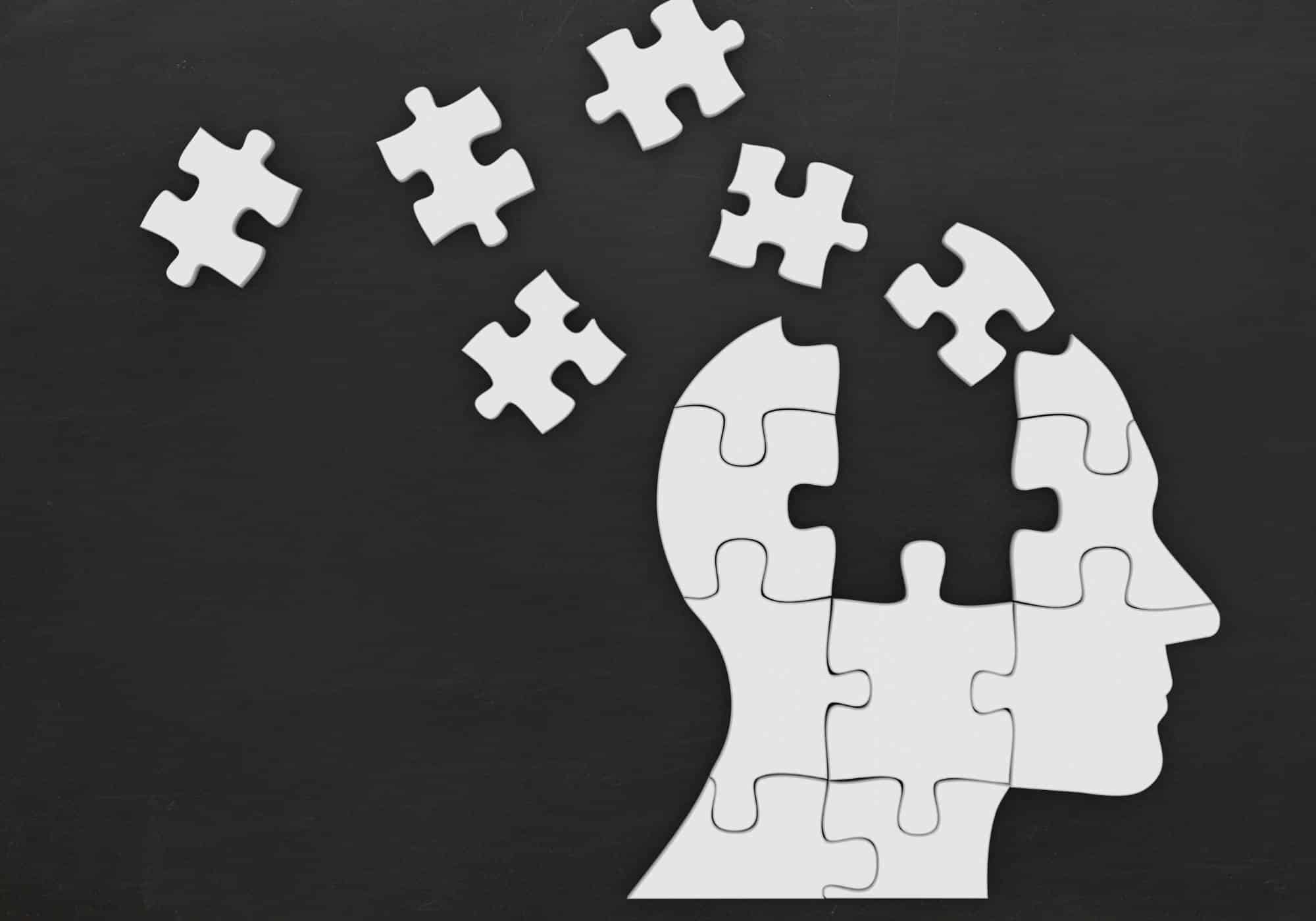For millions worldwide, managing severe depression and other depressive disorders is a persistent challenge that profoundly impacts emotional well-being, daily functioning, and overall quality of life. These debilitating conditions, characterized by persistent sadness, hopelessness, and a profound loss of interest or pleasure, often necessitate a comprehensive and individualized approach to treatment. Antidepressant medications frequently play a crucial role in alleviating these symptoms by carefully rebalancing neurotransmitters within the brain, thereby empowering individuals to regain control over their lives and improve their mental health.
However, the journey with antidepressants often raises significant questions and concerns. Patients and their loved ones frequently ponder the long-term effects of these medications and, critically, what happens to the brain when it’s time to stop taking them. The primary concern is whether the brain can truly return to its pre-medication state.
The human body, including the brain, possesses an extraordinary capacity for adaptation and recovery. When an individual gradually discontinues antidepressant usage, they may experience what is known as antidepressant discontinuation syndrome (ADS) as the body attempts to recalibrate its neurochemistry. While this transition can be challenging, with careful planning, professional support, and the brain’s natural resilience, it is often possible for an individual to regain a sense of equilibrium and largely return to their previous level of functioning, or even achieve new levels of well-being.
At Hooked on Hope Mental Health, we understand that navigating the decision to discontinue antidepressants is a significant step that requires expert guidance and compassionate care. Our outpatient mental health programs are designed to provide the comprehensive support needed for a safe and effective transition, focusing on holistic well-being and personalized strategies. To fully address the question of whether the brain returns to “normal” after taking antidepressants, let’s delve deeper into how these medications work, their influence on brain function, and the intricate process of discontinuation.
Understanding Antidepressants: Their Role and Mechanisms
Antidepressant medications function by subtly altering the levels of specific neurotransmitters in the brain—the chemical messengers responsible for regulating mood, emotions, and cognitive functions. By restoring a more balanced neurotransmitter profile, these medications aim to alleviate the often overwhelming symptoms of depression and other mood disorders.
Here’s a closer look at the common types of antidepressants and their primary mechanisms of action:
- Selective Serotonin Reuptake Inhibitors (SSRIs): SSRIs are the most frequently prescribed class of antidepressants. They work by selectively increasing the levels of serotonin, a neurotransmitter crucially involved in feelings of well-being, happiness, and emotional stability. SSRIs achieve this by blocking the reabsorption (reuptake) of serotonin by neurons, thereby making more of it available in the synaptic cleft—the space between nerve cells where chemical signals are transmitted. Common examples include fluoxetine (Prozac), sertraline (Zoloft), and escitalopram (Lexapro).
- Serotonin-Norepinephrine Reuptake Inhibitors (SNRIs): SNRIs are similar to SSRIs but broaden their impact by also targeting norepinephrine, another key neurotransmitter involved in mood regulation, energy, and alertness. By increasing the availability of both serotonin and norepinephrine, SNRIs can be effective for individuals who may not respond fully to SSRIs or who experience symptoms like fatigue and lack of motivation. Examples include venlafaxine (Effexor), duloxetine (Cymbalta), and desvenlafaxine (Pristiq).
- Tricyclic Antidepressants (TCAs): TCAs represent an older class of antidepressants that, like SNRIs, influence both serotonin and norepinephrine levels. However, TCAs also affect other neurotransmitters and receptors, which can lead to a broader range of side effects, including anticholinergic effects (dry mouth, constipation) and cardiac issues. Due to their more extensive side effect profile, TCAs are generally reserved for cases where newer medications have proven ineffective or for specific types of depression. Common TCAs include amitriptyline (Elavil), nortriptyline (Pamelor), and imipramine (Tofranil).
- Monoamine Oxidase Inhibitors (MAOIs): MAOIs are another older class of antidepressants that work by inhibiting the activity of monoamine oxidase, an enzyme responsible for breaking down neurotransmitters such as serotonin, norepinephrine, and dopamine. This inhibition leads to increased levels of these crucial neurotransmitters in the brain. Due to their potential for serious drug and food interactions (e.g., with tyramine-rich foods), MAOIs are typically reserved for individuals with treatment-resistant depression who have not responded to other options. Examples include phenelzine (Nardil) and tranylcypromine (Parnate).
Factors Influencing Antidepressant Effectiveness
The effectiveness of antidepressant treatment is highly individual and influenced by several critical factors:
- Duration of Treatment: Antidepressants often require a period of several weeks, typically 4-8 weeks, to reach their full therapeutic effect. It is crucial for patients to adhere to their prescribed regimen, even if immediate improvements are not apparent, as consistent use allows the brain to gradually adapt and respond.
- Dosage: The optimal dosage of an antidepressant varies significantly from person to person. Healthcare providers typically begin with a lower dose and gradually increase it as needed, a process known as titration. This approach helps to minimize initial side effects while identifying the most effective therapeutic dose for the individual.
- Individual Response and Side Effects: Each person’s brain chemistry and metabolism are unique, meaning responses to antidepressants can differ widely. It often involves a process of “trial and error” to find the most suitable medication and dosage. Side effects, which can include dizziness, nausea, weight changes, gastrointestinal issues, or sexual dysfunction, also vary. Open communication with a healthcare provider about any side effects or concerns is vital for adjusting the treatment plan.
How long does it take for antidepressants to work?
Antidepressants typically take 2-4 weeks to start showing initial improvements in symptoms, and 6-8 weeks or longer to reach their full therapeutic effect. Consistent use as prescribed is crucial.
The Brain’s Remarkable Adaptation to Antidepressants
The human brain possesses an incredible capacity for neuroplasticity—its inherent ability to change and reorganize itself throughout life. This dynamic process is fundamental to how the brain adapts to antidepressant treatment.
When antidepressants are introduced, the brain begins a complex process of adaptation:
- Alterations in Neurotransmitter Levels and Receptor Sensitivity: Antidepressants directly influence the availability of neurotransmitters like serotonin and norepinephrine in the synaptic cleft. In response to these sustained changes, the brain gradually adjusts the sensitivity and number of its receptors. For instance, if serotonin levels are consistently higher due to an SSRI, the brain may downregulate or desensitize its serotonin receptors over time. This is a compensatory mechanism aimed at maintaining balance, as the brain tries to adjust its “set point” to the new chemical environment. This intricate dance between medication and neurobiological recalibration is why it takes time for antidepressants to work and why abrupt discontinuation can be disruptive.
- Neuroplasticity and Neural Connections: Beyond simple receptor changes, antidepressants can promote neuroplastic changes, such as the growth of new neural connections (synaptogenesis) and even the generation of new neurons (neurogenesis), particularly in areas like the hippocampus, which is vital for mood regulation and memory. This rewiring helps to alleviate depressive symptoms by fostering healthier communication pathways within the brain.
- Genetic Factors: An individual’s unique genetic makeup plays a significant role in how their brain adapts to antidepressants. Genetic variations can influence everything from how quickly a medication is metabolized (affecting drug levels in the brain) to the function of specific neurotransmitter receptors and transporters. These genetic differences can explain why some individuals respond well to a particular antidepressant while others experience limited benefits or significant side effects. This highlights the importance of personalized medicine approaches.
This intricate adaptation process underscores that antidepressant use is not merely about passively altering brain chemistry but engaging the brain’s active, dynamic capacity to reorganize itself in response to treatment.
The Process of Discontinuing Antidepressants: Navigating Antidepressant Discontinuation Syndrome (ADS)
The decision to discontinue antidepressants, while often a positive step towards managing one’s mental health independently, is a process that requires careful planning, medical supervision, and robust support. Abruptly stopping antidepressant medication can trigger a range of uncomfortable and distressing symptoms collectively known as Antidepressant Discontinuation Syndrome (ADS), previously often referred to as “antidepressant withdrawal.”
What is Antidepressant Discontinuation Syndrome (ADS)?
ADS occurs because the brain has adapted to the presence of the medication. When the drug is suddenly removed, the brain’s chemistry is abruptly thrown out of balance, leading to a rebound effect.
Symptoms of ADS can vary in severity and duration but commonly include:
- Flu-like symptoms: Nausea, vomiting, headache, sweating, fatigue, chills.
- Gastrointestinal issues: Diarrhea, stomach cramps.
- Sleep disturbances: Insomnia, vivid dreams, nightmares.
- Sensory disturbances: “Brain zaps” (brief electric shock sensations), tingling, numbness, visual disturbances.
- Balance problems: Dizziness, lightheadedness, vertigo.
- Mood and psychological symptoms: Anxiety, agitation, irritability, mood swings, crying spells, confusion, difficulty concentrating, feelings of unreality (depersonalization/derealization), and sometimes a return of depressive or anxious symptoms (relapse).
These symptoms are not a sign of addiction in the traditional sense, but rather a physiological reaction to the brain’s adjustment to the absence of the medication.
The Crucial Role of Tapering
To minimize the severity of ADS symptoms, a gradual tapering process is essential. This involves slowly reducing the antidepressant dose over weeks or months, allowing the brain time to adjust to the changing levels of neurotransmitters.
The tapering schedule is highly individualized, depending on factors such as:
- The specific antidepressant (some have shorter half-lives and can cause more severe ADS).
- The dosage being taken.
- The duration of antidepressant use.
- The individual’s past history of discontinuation.
- The emergence and severity of ADS symptoms during the taper.
Abruptly stopping antidepressants is strongly discouraged due to the risk of severe and debilitating ADS symptoms, which can be misdiagnosed as a relapse of the underlying condition.
Support Strategies During Discontinuation
Alongside the tapering process, several strategies can be employed to support brain health and overall well-being:
- Psychological Support and Therapy: Engaging in psychotherapy, such as cognitive-behavioral therapy (CBT), acceptance and commitment therapy (ACT), or other forms of counseling, provides invaluable emotional support. Therapists can equip individuals with coping mechanisms to manage potential mood fluctuations, identify and address underlying psychological vulnerabilities, and develop strategies to prevent relapse. At Hooked on Hope Mental Health, our outpatient mental health programs offer structured therapeutic support during this sensitive period.
- Healthy Lifestyle Habits: Maintaining a balanced and healthy lifestyle is crucial for overall brain health and resilience. Regular physical exercise, a nutrient-rich diet, adequate and consistent sleep, and stress management techniques (like mindfulness or meditation) can all contribute to improved mental well-being and help mitigate potential ADS symptoms. These habits support the brain’s natural ability to restore balance.
- Alternative and Complementary Treatments: Exploring complementary approaches, such as meditation, yoga, acupuncture, or certain dietary supplements (under professional guidance), can offer additional support. These methods can help manage stress, improve sleep, and promote overall nervous system regulation during the transition.
How do you safely stop taking antidepressants?
Safely stopping antidepressants requires a gradual tapering process under the close supervision of a healthcare provider. Never stop abruptly, as this can lead to severe discontinuation symptoms. Your provider will create a personalized schedule for slowly reducing your dosage.
What are “brain zaps” from antidepressants?
“Brain zaps” are a common and distinctive symptom of antidepressant discontinuation syndrome (ADS), characterized by brief, electric shock-like sensations in the head that can sometimes spread to other parts of the body. They are thought to be caused by the brain adjusting to sudden changes in neurotransmitter levels.
What Happens to the Brain After Discontinuing Antidepressants?
The question of whether the brain truly “returns to normal” after discontinuing antidepressants is complex, and research in this area is ongoing. While the brain possesses remarkable plasticity, the process and outcomes vary significantly between individuals.
- Readjustment Period: After stopping antidepressants, the brain enters a crucial period of readjustment. During this time, the neurochemical systems, including neurotransmitter levels and receptor sensitivity, gradually work to return to a state that is independent of the medication. This involves the resensitization of receptors that may have become desensitized during treatment and the re-establishment of the brain’s endogenous (naturally produced) neurotransmitter production and reuptake mechanisms. This rebalancing act can take weeks to many months, even after the last dose.
- Return to Baseline vs. Lasting Changes: For many individuals, after successfully tapering off, their brain activity and neurochemical balance will largely return to their pre-treatment state. Some may even experience sustained improvements in mood and functioning, having used the medication as a catalyst for new coping skills or lifestyle changes. However, for others, discontinuing medication may lead to the return of original depressive symptoms (relapse), or even the emergence of new or protracted discontinuation symptoms that persist for an extended period. In rare cases, some individuals report lasting changes, though the mechanisms for this are still being researched.
- Post-Treatment Resilience: The brain’s ability to “bounce back” and maintain equilibrium without medication often depends on the skills and insights gained during treatment, the presence of strong support systems, and the adoption of healthy lifestyle practices.
Factors Influencing the Brain’s Return to “Normal” Functioning
Several critical factors influence how the brain responds to antidepressant discontinuation:
- Duration of Antidepressant Use: The length of time an individual has been taking antidepressants can significantly impact the brain’s ability to readjust. Longer durations of use typically mean the brain has undergone more profound adaptations, potentially requiring a more prolonged and gradual tapering process for neurochemical systems to regain equilibrium.
- Individual Biology and Genetics: Each person’s unique biological and genetic makeup plays a pivotal role in how their brain responds to discontinuing antidepressants. Variations in genes related to neurotransmitter synthesis, metabolism, receptor function, and overall neuroplasticity can influence the brain’s inherent adaptability and the overall recovery process. This genetic individuality underscores why tapering schedules must be personalized.
- Severity and Type of Initial Condition: The nature and severity of the underlying mental health condition for which the antidepressant was prescribed can affect the post-discontinuation landscape. Individuals with recurrent or severe depression may have a higher risk of relapse compared to those who took medication for a shorter period or for less severe conditions.
- Environmental Factors and Stressors: External factors, such as ongoing stress, the presence or absence of robust social support networks, significant life changes, and overall lifestyle choices (e.g., diet, exercise, substance use), can profoundly affect the brain’s ability to return to normal functioning. A supportive environment and healthy habits can significantly promote a smoother transition and facilitate recovery.
- Psychological Readiness: An individual’s psychological state, their understanding of the tapering process, their coping skills, and their willingness to engage in therapy or self-care during the transition are also crucial.
Next Steps: Personalized Support at Hooked on Hope Mental Health
Given the inherent complexity of discontinuing antidepressants and the nuanced journey the brain undertakes, prioritizing personalized treatment plans and continuous monitoring is essential for supporting optimal mental health outcomes. This critical transition should never be attempted alone or abruptly.
At Hooked on Hope Mental Health, we believe in a client-focused approach to mental wellness. We understand that addressing your mental health needs requires more than just medication management; it necessitates comprehensive, integrated care that empowers you through every phase of your journey, including antidepressant discontinuation. Our outpatient mental health services are designed to provide the expert guidance, therapeutic support, and personalized strategies you need for a safe and sustainable transition.
Don’t navigate this complex path alone. Experience our compassionate, client-focused care firsthand. Contact Hooked on Hope Mental Health today at 470-287-1927 or via our online contact form to learn more about our outpatient mental health treatment programs and how we can support you in achieving your mental well-being goals. Your path to greater mental health and equilibrium starts here.
Frequently Asked Questions (FAQs) About Antidepressant Discontinuation
Will my brain go back to normal after stopping antidepressants?
For many, the brain’s neurochemical systems gradually readjust and largely return to their pre-treatment state over weeks to months after discontinuing antidepressants. However, the process varies by individual, and some may experience lasting changes or a return of symptoms.
What are the symptoms of stopping antidepressants?
When stopping antidepressants, individuals may experience Antidepressant Discontinuation Syndrome (ADS), with symptoms like flu-like feelings, “brain zaps,” dizziness, nausea, sleep disturbances, anxiety, and mood swings. These are withdrawal-like symptoms, not a sign of addiction.
How long do antidepressant withdrawal symptoms last?
Acute antidepressant discontinuation symptoms typically last a few weeks, but for some, particularly with longer-term use, symptoms can persist for several months, a condition known as protracted withdrawal.
Is it dangerous to stop antidepressants cold turkey?
Yes, stopping antidepressants abruptly (cold turkey) is highly discouraged and can be dangerous. It significantly increases the risk and severity of antidepressant discontinuation syndrome (ADS), which can be very distressing and potentially lead to relapse of the underlying condition.
What are “brain zaps” when discontinuing antidepressants?
“Brain zaps” are a common and unique sensation described as brief, electric shock-like feelings in the head, sometimes spreading to other parts of the body. They are a symptom of the brain adjusting to the rapid change in neurotransmitter levels.
How do I safely taper off antidepressants?
Safely tapering off antidepressants requires close medical supervision. Your healthcare provider will create a personalized schedule for gradually reducing your dosage over weeks or months, allowing your brain to adjust. Never attempt to taper without professional guidance.
Can taking antidepressants cause permanent changes to my brain?
While antidepressants cause significant neurochemical adaptations, the brain is highly plastic and generally capable of readjusting after discontinuation. However, individual responses vary, and some people may experience persistent changes or prolonged discontinuation symptoms. Research in this area is ongoing.
What kind of support does Hooked on Hope Mental Health offer for antidepressant discontinuation?
Hooked on Hope Mental Health offers comprehensive outpatient mental health services. This includes professional guidance for tapering plans, psychotherapy (such as CBT), strategies for managing discontinuation symptoms, and support for overall mental well-being to ensure a safe and smooth transition.
What factors influence how my brain reacts to stopping antidepressants?
Key factors include the duration of antidepressant use, your individual biology and genetics, the severity and type of your original mental health condition, and environmental factors like stress levels and social support.
Is it normal to feel anxious or depressed again after stopping antidepressants?
It is common to experience a return of anxiety or depressive symptoms after stopping antidepressants, which can be part of antidepressant discontinuation syndrome (ADS) or a sign of relapse of the underlying condition. This is why professional monitoring and therapeutic support are crucial during this time.







